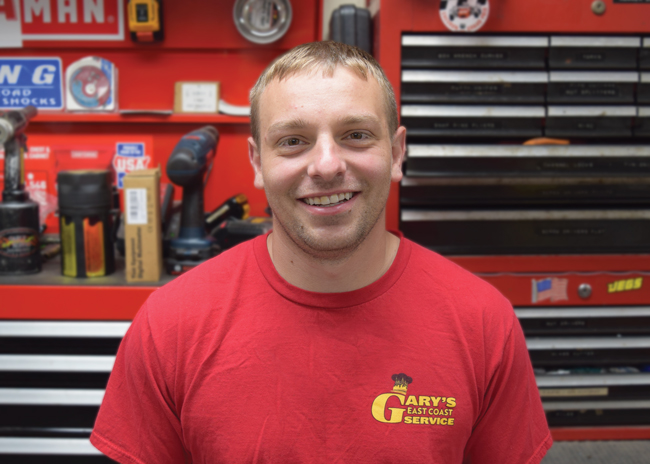Roughly eight years ago, Ryan Molloy traded working in 115-degree attics as a heating and air conditioning technician to working in commercial kitchens at Gary’s East Coast Service.
 Ryan MalloyTrue, he traded one hot environment for another, but Molloy would not change a thing. “Kitchens do get hot, but when you work on commercial kitchen equipment, you get to drive around to more locations throughout the day. Seeing different operators, including schools and independent restaurants and even some bigger grocery stores — that variety is very appealing to me.”
Ryan MalloyTrue, he traded one hot environment for another, but Molloy would not change a thing. “Kitchens do get hot, but when you work on commercial kitchen equipment, you get to drive around to more locations throughout the day. Seeing different operators, including schools and independent restaurants and even some bigger grocery stores — that variety is very appealing to me.”
Q: How has foodservice equipment evolved since you first got started?
A: It’s a lot more involved on the tech side than there was when I first started. For example, there’s more computer-like aspects to the equipment. You have a lot of touch screens. Some computers have Wi-Fi connections that allow manufacturers to better track error codes. It’s definitely more high-tech oriented than mechanically oriented. As a result, I now carry around a USB drive that allows me to make software updates. So, you have to be more tech savvy now.
Q: What’s a common mistake operators should avoid making to ensure their equipment remains up and running?
A: Cleanliness is really important. So long as you maintain your unit and keep it clean, those components rarely go bad. Also, have a set temperature for a specific piece of equipment and operate it at that temperature. A lot of operators will go in and crank the equipment to its highest setting. But most equipment can’t handle operating at such high levels 24/7. If you are maxing out your equipment and not cleaning it, that’s when you will have problems.
Q: Will planned maintenance keep something from breaking down?
A: It definitely lessens the likelihood a piece of equipment will break down. We have a lot of customers with high lime content in their water. In these instances, planned maintenance will help keep the equipment — like steamers and combi ovens — running longer. That’s because during a planned maintenance visit, we check all the components to make sure they are working well and descale a boiler. If you don’t clean that boiler and descale it, you will most likely have to replace it a lot sooner and those components can be very expensive. So, no, planned maintenance does not mean the equipment won’t break down at some point, but it lessens the likelihood and can extend the life of the equipment, often by years.
Q: What’s the most important lesson you’ve learned?
A: Always double check your work. When a component goes bad in a piece of equipment, there’s always a reason for it. So don’t just reorder that piece of equipment. Thoroughly go through the unit and test all the components. Take your time and don’t rush through it.



